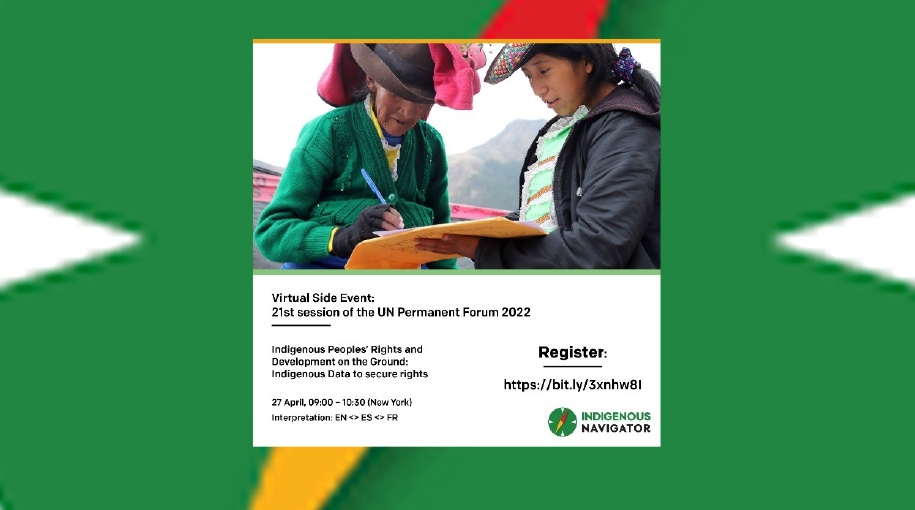"Grounded on indigenous values and cultures, the Indigenous Navigator is providing digital tools directly to the Indigenous communities, supporting their own innovation towards contemporary problem-solving through community assessments, mapping, environmental tracking, and support for their livelihoods and social enterprises, thus empowering them to be well-informed actors in addressing the multiple crises confronting Indigenous peoples and nature."
Joji Cariño, Senior Policy Advisor of Forest Peoples Programme, shared the contributions of the Indigenous Navigator in assessing challenges to realize Indigenous peoples’ rights, the role of data during the virtual side event of 21st session of the United Nations Permanent Forum on Indigenous Issues (UNPFII) on 27 April 2022.
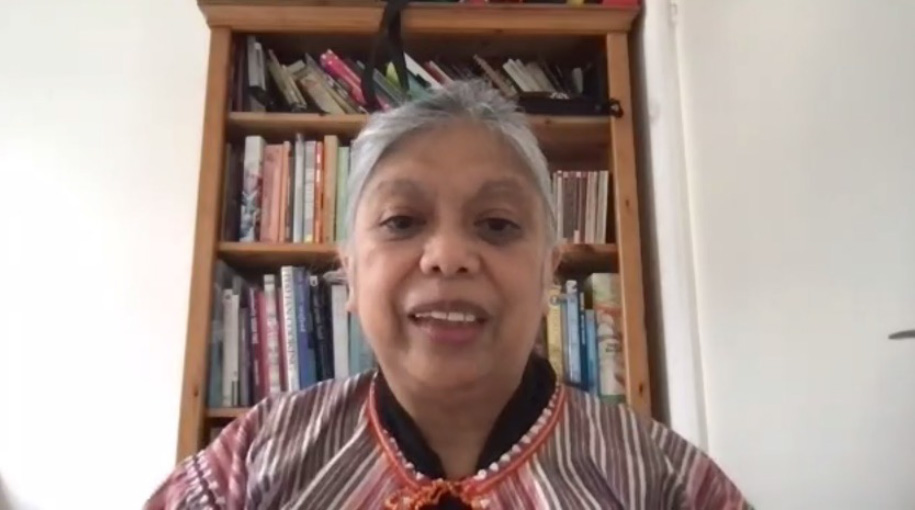
Joji Cariño, FPP
Local Indigenous leaders from Latin America, Africa, Oceania and Asia shared their experiences in advocating for the respect and implementation of their rights and the critical role of the Indigenous Navigator in monitoring the rights of Indigenous Peoples and enhancing Indigenous Peoples' opportunity to collect data on their situation.
"Through the Indigenous Navigator, the Indigenous Peoples themselves will monitor how their rights are being protected, respected, and fulfilled', said Victoria Tauli-Corpuz, the Executive Director of Tebtebba, co-convenor of Indigenous Peoples Major Group on the Sustainable Development Goals (IPMG- SDG), and the former UN Special Rapporteur on the Rights of Indigenous Peoples, who intervened in the said virtual event.
Tauli-Corpuz also highlighted the framework of Community-Based Monitoring and Information Systems (CBMIS), where Indigenous peoples themselves will monitor how their rights are being protected, respected and fulfilled, and identify challenges so that they can bring these to the relevant actors.
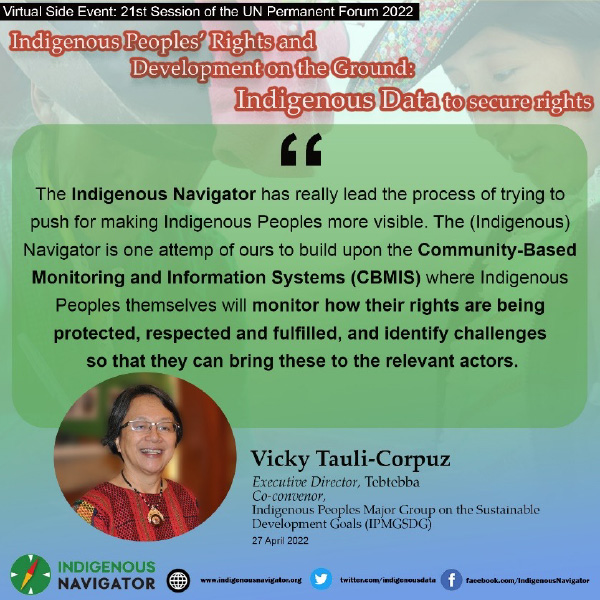
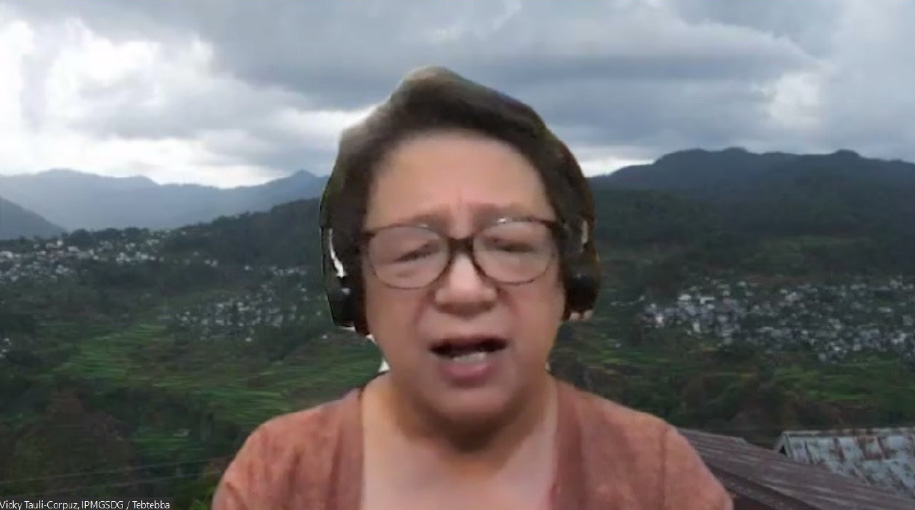
Victoria Tauli-Corpuz, Tebtebba
According to the United Nations Sustainable Development Group, collecting data and disaggregation on indigenous peoples can be ‘inadequate and sometimes non-existent’. This in turn has had significant consequences on how the problems that indigenous peoples face is addressed’.[i] Thus, if there is no disaggregated data on Indigenous Peoples, and no effort to ensure that they are included in digital transformations, they will remain invisible, their rights will continue to be disregarded in the context of implementing the Sustainable Development Goals (SDGs) and they will be left behind.
Timothee Emini of OKANI in Cameroon shared how the Indigenous Navigator addressed their community needs especially on the need for their citizenship documents. “Indigenous Peoples in Cameroon are faced with discrimination and violation of human rights. We find it very hard to provide evidences. With the tools provided by the Indigenous Navigator, we managed to collect data which enabled us to manage difficult situations," he said.
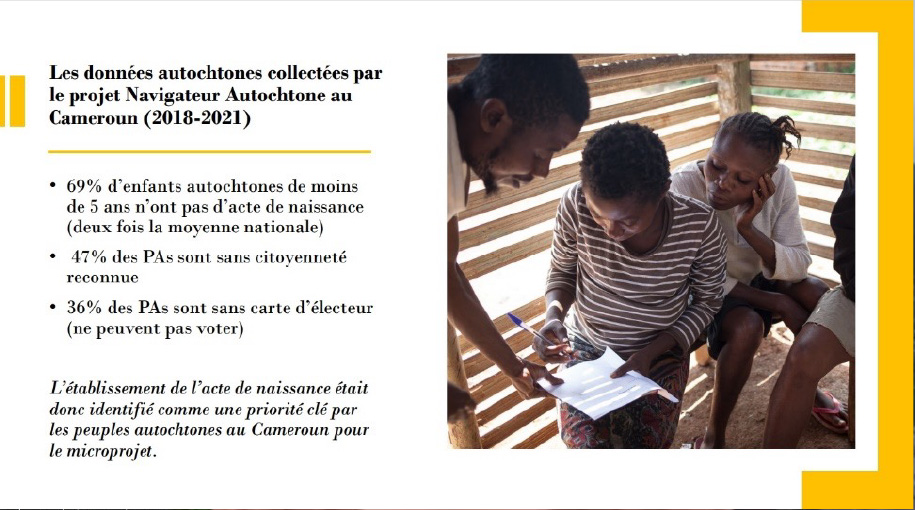

Timothee Emini, OKANI
Experiences of Indigenous peoples in Latin America were also shared by Melania Canales Poma of Organizacion de Mujeres Indigenas Andinas y Amazonicas del Peru (ONAMIAP) and stressed how disaggregated data and tools like the Indigenous Navigator contribute to the Sustainable Development Goals (SDGs). "This is a tool that help us make problems visible," she remarked.
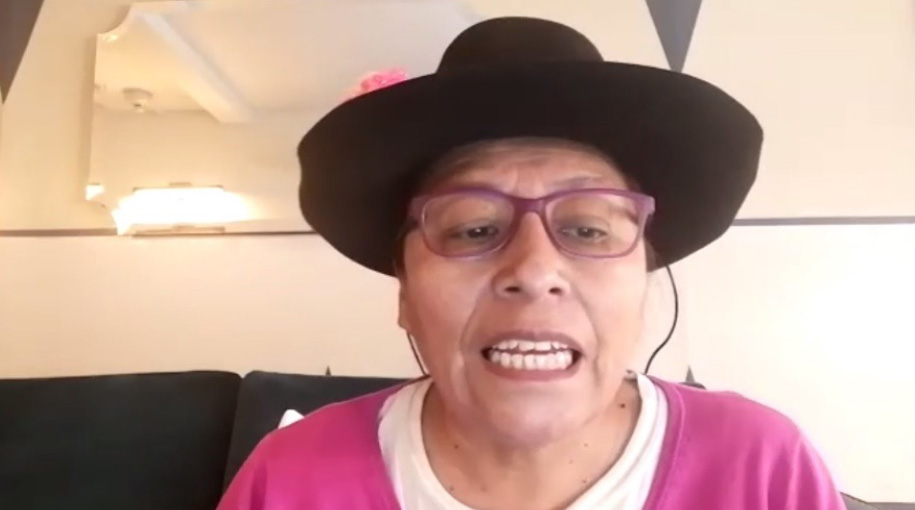
Melania Poma, ONAMIAP
In Asia, Shohel Chandra Hajang, Program Officer of the Asia Indigenous Peoples Pact (AIPP), presented situations being faced by Indigenous peoples especially women. "Indigenous Peoples have been threatened, and evicted from their ancestral lands. Women are also mostly absent in the decision-making process," he reported, focusing also on the current Free, Prior, and Informed Consent (FPIC) participation barriers being experienced by Indigenous peoples in the region and how to overcome them.
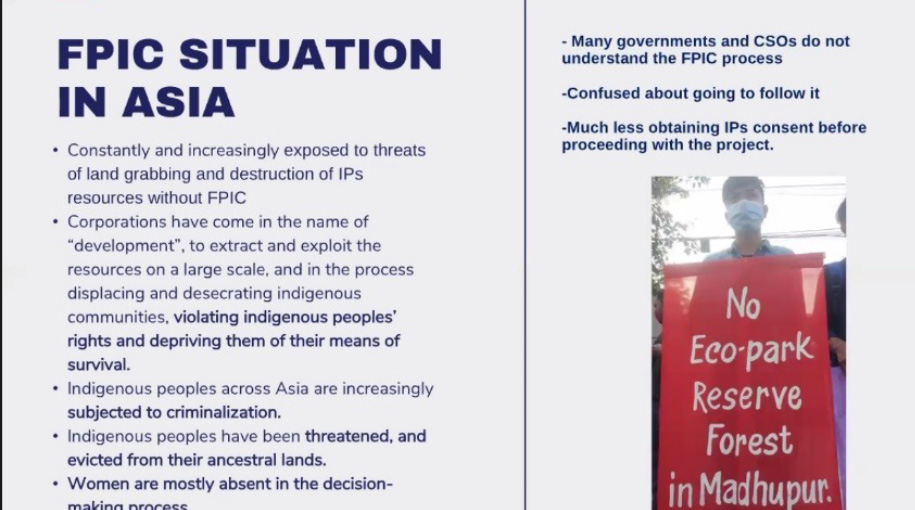
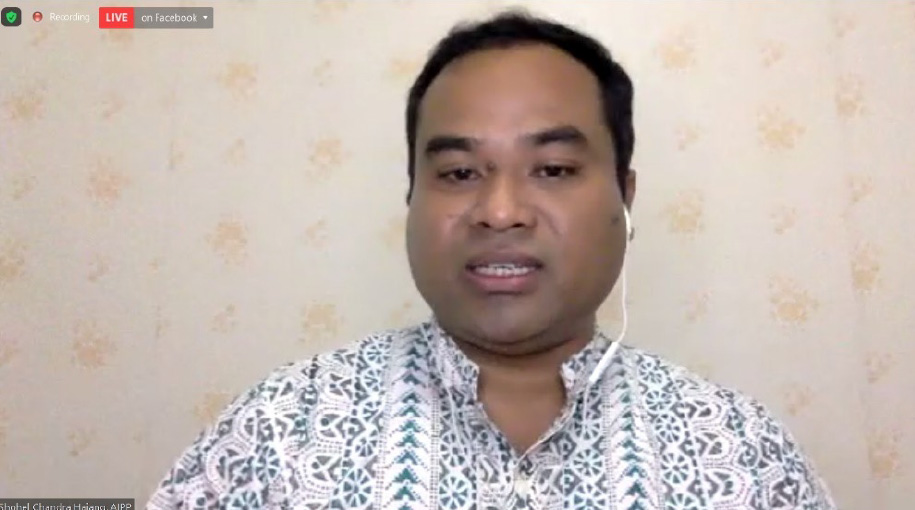
Shohel Chandra Hajang, AIPP
"The data provided by Indigenous Navigator can help Saami communities to monitor the implementation of their rights in local or national level," Oula-Antti Labba from the Saami Council also pointed out the use of the Indigenous Navigator in the Saami context and the importance of data.
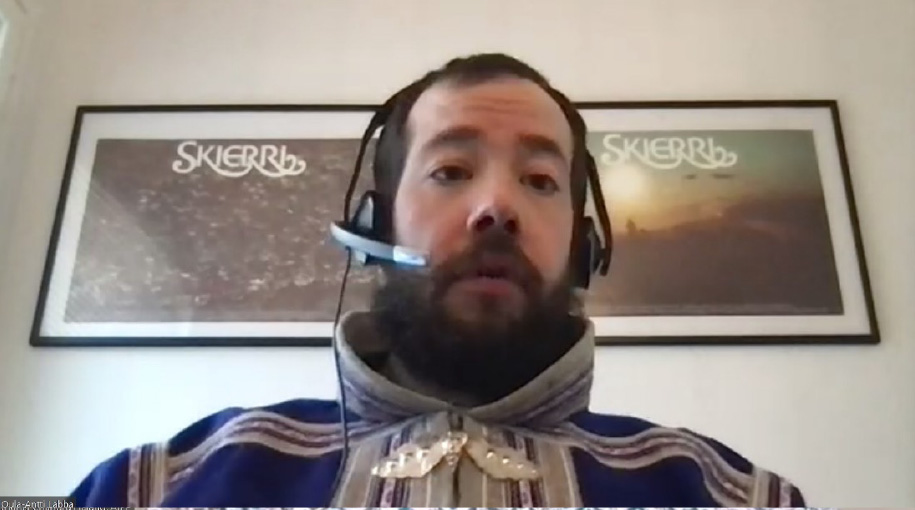
Oula-Antti Labba, Saami Council
For the future work of UNPFII, Sebastian Porter from the Department of International Partnership (DG INTPA) of the European Commission reiterated that the development priorities must be designed by Indigenous peoples themselves. He also said that the European Union, besides their long-standing political support for the Indigenous Peoples' rights, must ensure that their external actions are guided by the human rights-based approach. "We are currently looking at new ways to further build up the (Indigenous) Navigator by increasing its use by a wide range of development actors and also to explore new frontiers (countries and communities) for its application," he concluded.
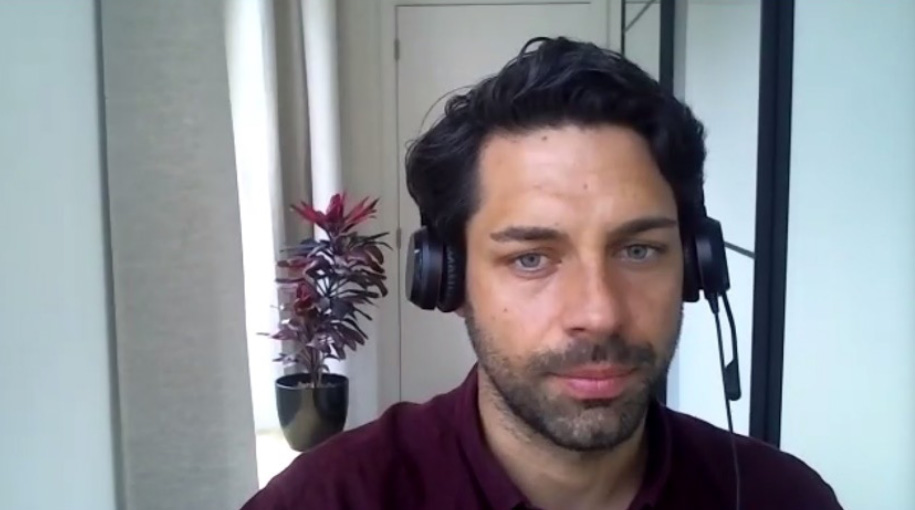
Sebastian Porter, Program Manager, DG INPTA G.1.
Conceived as an enabling open-source tool that can be used by Indigenous Peoples worldwide, the Indigenous Navigator framework builds on international human rights instruments such as the United Nations Declaration on the Rights of Indigenous Peoples and International Labour Organization (ILO) Convention No. 169, as well as relevant SDG targets and indicators enable Indigenous communities to capture the implementation and realization of their rights.
Seeking to focus on gaps in the realities and on-the-ground stories of Indigenous peoples, the event aimed to bring together multiple stakeholders, including governments, Non-Government Organizations, international organizations and Indigenous peoples to enhance dialogue and find concrete pathways to improving Indigenous peoples’ rights and well-being.
Made possible with support from the European Union and the facilitation of the International Work Group for Indigenous Affairs (IWGIA), the said event shed light on the rights and development situation of indigenous peoples and on how they have been using the Indigenous Navigator as a transformative tool.
Established in 2000, the United Nations Permanent Forum on Indigenous issues (UNPFII) is a high- level advisory body to the Economic and Social Council with the mandate to deal with indigenous issues related to economic and social development, culture, the environment, education, health and human rights. The 21stsession of UNPFII happened on 25 April to 6 May 2022, with the theme “Indigenous peoples, business, autonomy and the human rights principles of due diligence including free, prior and informed consent”.
-----
[i] https://www.un.org/development/desa/indigenouspeoples/mandated-areas1/data-and-indicators.html


